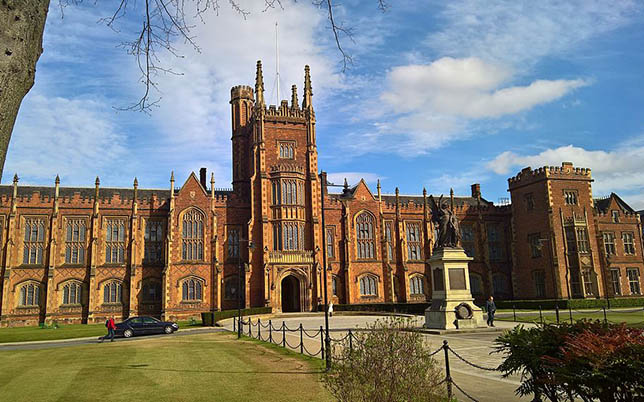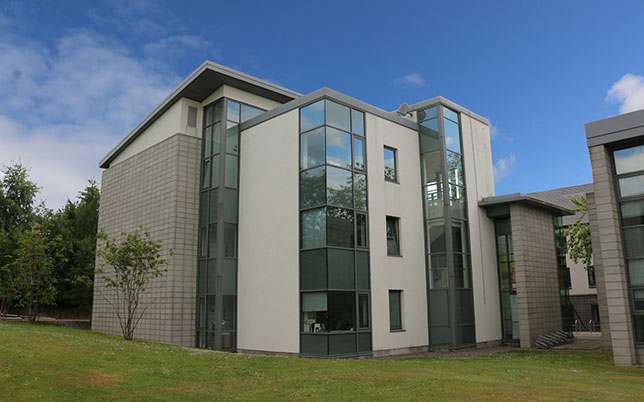Events & WEBINARS

Originally planned as a number of international conferences, these events have been reconfigured into a series of webinars and and conferences. Many of the events have been recorded and are freely available as podcasts.
Framing Ageing Symposium: One-day workshop for early career scholars
Queen’s University Belfast, Wednesday 14 December 2022
Keynote speaker, Hannah Zeilig, University of the Arts, London will open the symposium. The full programme for the conference is here and the book of abstracts is here.
Keynote – Hannah Zeilig (University of Arts, London) – ‘The pleasure of finding things out’.
Session 1 (3 Parallel Sessions)
Session 1a: Art, Music and Material Culture
Chair: Sophie Cooper; Discussant: Leonie Hannan
Angel Leira Pernas (QUB) – ‘The Meaning of the Present in Old Age – An Alternative to the Discourse of Decline’
Olivia Luijnenburg (KCL) – ‘Gallery of Spiritualities Reflecting on Spirituality in the Residential Care for Older People
Sophie Lee (RIAM) – ‘Ageing with Dementia – The Role of Music’
Isaac Gibson (SARC, QUB) – “Memory Boxes” of People Receiving Palliative Care’
Session 1b: Perspectives on Dementia
Chair: Gemma Carney; Discussant: Jiatong Ling
Calum Marr (QUB) – ”The RESIST Study: Do TNF Inhibitors Pro-tect Against Cognitive Decline in Rheumatoid Arthritis Patients with Mild Cognitive Impairment?’
Niamh Kelly (TUS) – ‘Physical Activity Preferences of People Living with Dementia and Their Care Partners’
Sophie Glover (QUB) – ‘Identification of the Causal Pathways Be-tween Urban Green Space and Cognitive Health: A Systematic Review’
Monica Leverton (KCL) – ‘Developing the Role of Dementia Champi-ons in The Homecare Sector – The ‘DemChamp’ Study’
Session 1c: Ageing in the Community
Chair: Elizabeth Martin; Discussant: Des O’Neill
Leeanne O’Hara (QUB) – ‘The Harmonised Cognitive Assessment Protocol (HCAP)’
Catrin Noone (Durham) – ‘Loneliness in the Community or Community Lone-liness? Lived Experiences of Community-Dwelling Older Adults’
Lauren Fothergill (Lancaster) – ‘Exploring How Proactive Telecare Can Sup-port Independent Living in Older Adults: A Qualitative Study’
Mbulayi Shingirai (Fort Hare) – ‘Gestating Sustainable Geri-atric Social Protection System in Zimbabwae: Issues, Challenges and Prospects’
Session 2 (3 Parallel Sessions)
Session 2a: Comparative Ageing
Chair: Des O’Neill; Discussant: Leeanne O’Hara
Jiatong Ling (QUB) – ‘Grandparent Involvement in Childcare: A Qualitative Study in Chinese Families’
Kiki Ekiawan Lamatungga (Technical University in Zvolen) – ‘Effect of the Restorative Natural Environment on HRV, HR, Stress, and Cognitive Function in Slovak Seniors’
Ione Avila-Palencia (QUB) – ‘Mapping the Complex Systems that Connects the Urban Environment to Cognitive Decline in Older Adults: A Group Model Building Study’.
Session 2b: Music, Film, Theatre and Literature
Chair: Leonie Hannan; Discussant: Angel Leira Pernas
Neasa Fitzpatrick (Mercy University Hospital Cork) – ”Spotlighting the Success of Older Female Directors: A Demonstration of the Creativity and Resilience of Old Age in the Face of Cultural Barriers’
Réka Polonyi and Kate Maguire-Rosier (Manchester) – ‘‘What’s Theatre Got to Do with It?’: The Care Aesthetics Research Exploration (CARE) Project and Its Interdisciplinary Challenges’
Xu, Yaqia (Warwick) – ‘Ageing Masculinity in American Novels since the 1970s’
Session 2c: Public Policy in Ageing Societies
Chair: Isaac Gibson; Discussant: Gemma Carney
Kaitlyn Juryung Cho (Oxford) – ‘The Global Paradigm Shift towards Active Ageing and Beyond: An Analysis of Policy Documents by International Organizations’.
Luis Soares (Edinburgh) – ‘Reframing Social Sciences Epistemologies and Methods Using a Framework to Dissolve “Wicked Problems”’
Lauren Fothergill (Lancaster) – ‘Exploring How Proactive Telecare Can Sup-port Independent Living in Older Adults: A Qualitative Study’
Chloe Waterman (KCL) – ‘A Socio-Legal Investigation into Making Plans for Dying, Perspectives of People with Dementia’
The full programme for the conference is here and the book of abstracts is here.

Originally planned as a number of international conferences, these events have been reconfigured into a series of webinars and an in-house closed conference. Many of the events have been recorded and are freely available as podcasts.
2-3 December 2021
This final event in the ‘Framing Ageing’ project was a closed in-house event which took place on 2-3 December 2021. The papers were recorded and edited into podcasts that are now available on the Framing Ageing website and available on the UCD Humanities Institute podcast channels on SoundCloud, Spotify and Apple. The full programme for the conference is here.
Day 1: Thursday 2 December
Panel 1 – Visibility / Invisibility
David G. Troyansky (CUNY) – ‘Visibility/Invisibility between Narrative and Image’
Julia Langbein (TCD) – ‘The Image of Old Age and the Problem of the Figural’
Panel 2 – Narrative I
Anne Fuchs (UCD) – ‘Elizabeth Strout’s Olive, Again and the leaking body from speechless abjection to narrated empathy’
Dana Walrath (Vermont) – ‘From Graphic Memoir to Chamber Opera: The Interdisciplinarities of Aliceheimer’s’
Day 2: Friday 3 December
Panel 4 – Successful Ageing and Technologies of the Self
Susan Pickard (Liverpool) – ‘Bringing together ‘successful ageing’ and the double standard of ageing: (how) do these terms intersect to shape women’s embodied ageing?’
Wendy Martin (Brunel) – ‘Ageing, the Digital and Everyday Life’
Panel 5 – Narrative II
Gillian Pye (UCD) – ‘All things considered: on the narrativity, performativity and ethics of happiness in fictional accounts of old age’
Mary Cosgrove (TCD) – ‘The Meaning of Middle Age in Terézia Mora’s Darius-Kopp Trilogy’
Panel 6 – Ageing across the disciplines
Desmond O’Neill (TCD) – ‘Towards deeper synergies between humanities and gerontology’
Gemma Carney (QUB) – ‘The politics of working across disciplines – an insider’s view’
Panel 7 – Vulnerability
Katie Featherstone (Cardiff) – ‘Pad cultures: routines of intimate care and their consequences for people living with dementia’
Ulla Kriebernegg (Graz) – ‘Growing Old Amid Climate Change: Dystopian Narratives of Vulnerability and Resistance’
Final Discussion
Panel 5: Methodologies
Part I
- Julia Langbein (Trinity College Dublin):
‘M.E. Chevreul (1786-1889): Old Age and the Subject of Photography’ - Gemma Carney (Queen’s University, Belfast)
’Old Age in the Age of Coronavirus – a qualitative media analysis’ - David G. Troyansky (Brooklyn College and Graduate Center, CUNY):
‘J.R.’s ‘Wrinkles of the City’ project. Representing Global Old Age, 2008-2015’ - Response: Susan Pickard
Part II
- Ulla Kriebernegg (University of Graz):
‘Literary gerontology: Understanding ageing bodies and identities through cultural representation’ - Robert Zwijnenberg (Leiden University): ‘Aging, the risk of life and the urgency of art’
- Response: Dana Walrath

Originally planned as two international conferences, these events have been reconfigured into a series of webinars.
Webinar 5
7 May 2021
15.00 to 16.20 GMT
Panel 7: Practise II
Chair: Gillian Pye (University College Dublin)
Introductory words by Gillian Pye
Dana Walrath (Atlantic Fellow for Equity in Brain Health at the Global Brain Health Institute) ‘Between Alice and the Eagle: Dementia Journeys and the Final Breath’
Response: Mary Cosgrove, Trinity College Dublin
Tara Byrne (Age & Opportunity) ‘Die! Die! Old People Die!: subverting and celebrating older age through the arts’
Response: Linda Shortt (Maynooth University)
Comfort Break
Desmond O’Neill (Trinity College Dublin)
‘Cultural gerontology and medical humanities: opportunities for mutual learning’
Response: Julia Twigg (University of Kent)
The event will end for the public at 4.20pm but will be followed by a 40 minute discussion for network participants only on the forthcoming conference and edited volume.
Panel 5: Methodologies
Part I
- Julia Langbein (Trinity College Dublin):
‘M.E. Chevreul (1786-1889): Old Age and the Subject of Photography’ - Gemma Carney (Queen’s University, Belfast)
’Old Age in the Age of Coronavirus – a qualitative media analysis’ - David G. Troyansky (Brooklyn College and Graduate Center, CUNY):
‘J.R.’s ‘Wrinkles of the City’ project. Representing Global Old Age, 2008-2015’ - Response: Susan Pickard
Part II
- Ulla Kriebernegg (University of Graz):
‘Literary gerontology: Understanding ageing bodies and identities through cultural representation’ - Robert Zwijnenberg (Leiden University): ‘Aging, the risk of life and the urgency of art’
- Response: Dana Walrath
Webinar 4
5 March 2021
15.00 to 17.30 GMT
Panel 6: Practise I
Chair: Anne Fuchs (University College Dublin)
Introductory words by Anne Fuchs
Hilary Moss (University of Limerick)
‘The role of the arts in the lives of older people before, during and after a hospital stay: aesthetic neglect or enrichments?’
Response: Tara Byrne, Age & Opportunity
Katie Featherstone (Cardiff University) ‘Wandering the Wards: Everyday hospital care and its consequences for people living with dementia’
Response: Ulla Kriebernegg (University of Graz)
Comfort Break
Desmond J Tobin (University College Dublin)
‘Our Ageing Skin – can we ever feel comfortable in it/ with it?’
Response: Robert Zwijnenberg (Leiden University)
Discussion
Previous webinars
Webinar 3
22 January 2021
15.00 to 17.15 GMT
Panel 5: Methodologies
Part I
- Julia Langbein (Trinity College Dublin): Theorizing a Visual Culture of Old Age: The Case of Neoimpressionism
- Gemma Carney (Queen’s University, Belfast)
’Old Age in the Age of Coronavirus – a qualitative media analysis’ - David G. Troyansky (Brooklyn College and Graduate Center, CUNY):
‘J.R.’s ‘Wrinkles of the City’ project. Representing Global Old Age, 2008-2015’ - Response: Susan Pickard
Part II
- Ulla Kriebernegg (University of Graz):
‘Understanding ageing bodies and identities through cultural representation: A literary gerontological reading of Margaret Atwood’s “Torching the Dusties”‘ - Robert Zwijnenberg (Leiden University): ‘Aging, the risk of life and the urgency of art’
- Response: Dana Walrath
Webinar 2
15 December 2020
15.00 to 17.30 GMT
Panel 3: Narrating Gender and Ageing
- Linda Shortt (University of Warwick):
(Un)Fit Ageing: the Ageing Male in Hermann Kinder’s writings - Anne Fuchs (UCD Humanities Institute):
The Inner Voice of Ageing Women: Elizabeth Strout’s Olive Kitteridge and Olive, Again - Mary Cosgrove (Trinity College Dublin):
The Meaning of Middle Age in Contemporary German Literature
Panel 4: Memory and Experience
- Aleida Assmann (University of Konstanz):
Wisdom: a new concept for gerontology? - Zainabu Jallo (University of Bern):
Ageing in Diaspora - Gillian Pye (University College Dublin):
Happiness as emotional experience and narrative process in literary accounts of old age
Webinar 1
27 October 2020
A video of this webinar is now available to watch on our podcasts page.
Panel 1: Ageing Bodies and Identities
- Rina Knoeff (University of Groningen): ‘Revisiting the centenarian cult: On
the cultural significance of tales of exceptional old age’ - Paul Higgs (University College London): ‘The ageing body and the social imaginary of the fourth age’
- Julia Twigg (University of Kent): ‘Age, Dress and the Cultural Turn in Gerontology’
Panel 2: Gender, Subjectivity and Agency
- Andrew King (University of Surrey) ‘Coming far, getting somewhere? The current
concerns and future challenges facing older LGTB+ people’ - Susan Pickard (University of Liverpool): ‘Last Love’
- Wendy Martin (Brunel University): ‘Forever ‘Becoming’? Negotiating Gendered and Ageing Embodiment in Everyday Life’
Covid-19 Reframing Ageing
Friday, 12 June 2020
There are many emerging stories in the global Covid-19 crisis, stories of sickness, death, lockdown, isolation, unemployment, alongside stories of human resilience, solidarity and hope for sustainability, social inclusion and fairness.
However, from an early point, the discourse on older people was controversial and troubling. While the intent was to protect vulnerable cohorts from infection, this well-intended policy resulted in severely restricted freedom and mobility over an extended period of time, causing mental and other health issues.
Against this backdrop our webinar on C19 asked what are the blind spots and biases that Covid-19 has revealed in public discourse, political rhetoric and narratives of experience?
Contributors: Ailbhe Smyth, Thomas Scharf, Ulla Kriebernegg, Paul Higgs, Dana Walrath, Andrew King, Susan Pickard, Rina Knoeff.
Chairs: Professor Anne Fuchs (Humanities Institute UCD), Professor Des O’Neill (Royal College of Surgeons/TCD), Professor Mary Cosgrove (TCD), Dr Julia Langbein (TCD).
The chairs have compiled a report on the webinar which is now available to download. Click here to read the report.
![[ Framing Ageing ]](https://framingageing.ucd.ie/wp-content/uploads/2019/12/cropped-framing-ageing_crests_41-01-1-156x55.png)